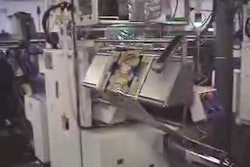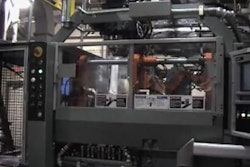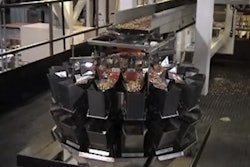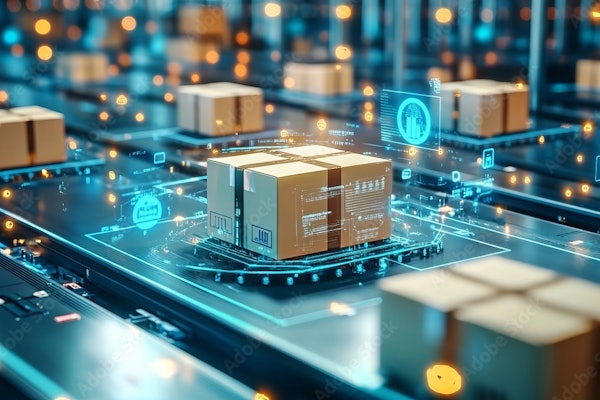The survey allowed participants to explain how they felt about buying through distributors. Here’s a sampling of both the positive and negative comments about distributors:
“Buying through distributors means no long lead times.”—manager for a small cosmetics company in the Southwest
“My company buys material and equipment through distributors because they are local and offer faster support.”—engineer for a greeting card marketer in the Southeast
“Our company is moving toward supplier-managed inventories. Distributors can provide this type of service relative to payment and delivery. You tend to pay a little more, but the savings is still there due to reduced inventories.”—engineer from a nonfood consumer products maker in the Midwest
“During the recent slow period, we’ve been able to get longer terms with our distributors.”
—manager at a West Coast cosmetics maker
“We used to buy containers direct. However, we now get them cheaper with better terms through a distributor.”—R&D executive for a West Coast-based maker of chemicals
“When looking for containers and closures, the variety of products available through distributors is superior to dealing with all the manufacturers separately.”—buyer for a large medical products maker in the Northeast
“Our local distributor keeps inventory on hand so it can deliver within 24 hours. That compares to a manufacturer in the Midwest who delivers in seven to 10 business days.”—marketing executive for a small food processor in the Northeast.
“They help keep you up-to-date on pricing and availability.”—manager at a mid-sized industrial products maker in the Southeast
“Some manufacturers don’t seem to care about resolving issues with customers. But distributors will [resolve problems] to preserve their customers’ relationships.”—manager at a small dairy in the Midwest
“With them, we can compress lead times and improve delivery. In our view, the only reason a distributor exists is to carry proper stock levels so we don’t need to carry inventory.”—manager for a mid-sized chemical company in the Midwest c
“Buying materials from the manufacturer is similar to buying at wholesale clubs: the price will be good, selection will be non-existent, and the service level will be only as good as you are.”—manager for a nonfood consumer products maker
“We purchase much equipment that’s made offshore. If we bought direct, we wouldn’t get the service we need. So by buying through a distributor we know we’ve got help when we need it.”—engineer for a major international medical products maker
“Our company sometimes has trouble meeting certain minimum order requirements from large suppliers. Often a distributor can get better terms and offer us lower minimum order volumes.”—packaging professional for a large cosmetics producer in the Mountain States
“We used to buy plastic sheet directly from manufacturers. We switched to a distributor and we get our products cheaper and quicker.”—manager for a small converter in the Northeast
“They have the ability to see new packaging technology from a variety of manufacturers.”—marketing executive for a large garden products manufacturer
“Through a distributor, we have better interface with a vendor and more clout.”—R&D executive with a large northeastern medical products company
“We can buy through a distributor and have our materials delivered as we need them. This helps smooth out our cash flow requirements,” says a purchasing agent for a meat processor in the Mountain States
Finally, a purchasing agent for a major national candy maker frames the distributor vs manufacturer relationship like an equation. “Small volume to big suppliers equals large volume to smaller distributors.”
We don’t need distributors!
“After we purchased a new roll-stock machine, our distributor had no idea of what kind of films options were available. So we went direct and were able to find what we were looking for.”—manager at a small meat processor
“Our company has to work through distributors. There’s no choice in South Florida, and also no benefit.”—purchasing executive for a small industrial products maker
“By dealing directly with the supplier, I don’t have to get second-hand, sometimes incorrect information from a middleman I had to play phone-tag with. I have always had better luck dealing with the supplier rather than the distributor.”—engineer for a mid-sized midwestern pasta company
“They want to sell you everything they think you need and don’t really listen to what is desired. They have all this equipment and need to make the largest sale possible.”—production worker for a major West Coast household products maker
“For custom products, it’s better to deal direct with the manufacturer. If you have to go through a distributor, it becomes a useless intermediary.”—purchasing executive for a large medical products maker in Canada
“Distributors don’t seem to use their greatest strengths, translating high-volume purchases into lower costs and better service for customers. They don’t seem to be able to use the volume leverage they have.”—engineer for a large midwestern cosmetics maker
“Where I have the volume, I cut out the distributor. I only use them if my orders are too small to go direct.”—manager for a large nonfood consumer products maker in the Mid-Atlantic States.
For more comments on distributors, see: https://www.packworld.com/go/w018
See the story that goes with this sidebar: Climbing the ladder of f/f/s technology

























